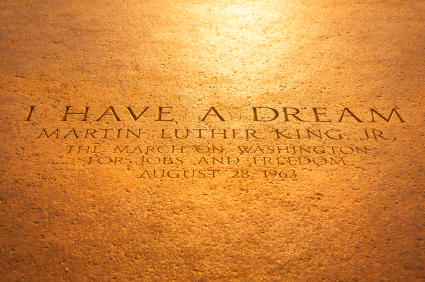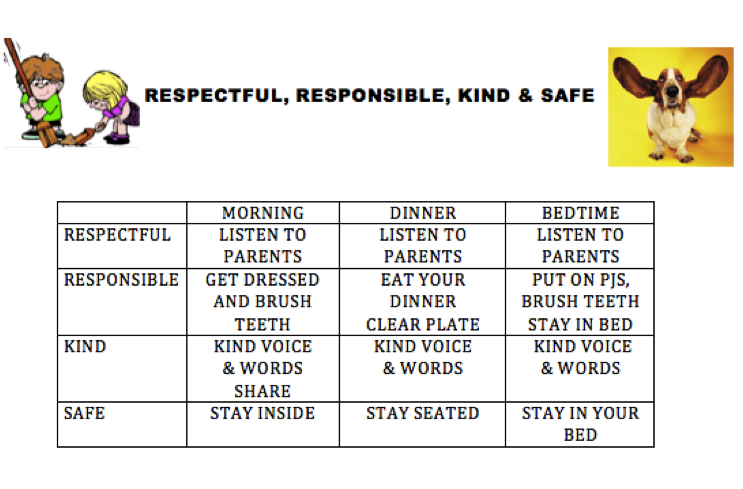 Martin Luther King, Jr. Day is a good time to reflect on civil rights in all walks of life.
Martin Luther King, Jr. Day is a good time to reflect on civil rights in all walks of life.
For kids, civil rights (or the lack thereof) in education can make all the difference in terms of opportunity.
If a child starts out at an educational disadvantage, he or she may spend the rest of his or her time in school playing catch-up. Any experienced social or emotional trauma that goes unnoticed can impact behavior at school.
The good news is that many of the education initiatives currently underway seek to connect the dots of emotional well-being, school readiness and perception of success. Investments in early learning are geared toward giving kids a true "head start." There is a new-found focus on the connection between social and emotional well-being and behavior.
Terms like "developing student agency," grit and mindset increasingly are gaining traction. The gist of all of them is that a student's start in life, even if rocky, does not predetermine his or her chances for success. Individuals have the power to change the course of their lives, if they are encouraged to believe that they can do so.
In other words, if they have a dream.
School climate change
In the spirit of the Civil Rights Movement, the Departments of Justice and Education have just announced new school discipline guidelines aimed at reducing disproportionate suspensions and expulsions, based on race. This is an effort to address a national problem known as the "school-to-prison pipeline," which sends students (often minorities ) who struggle with discipline problems directly to the criminal justice system. Here's a good explanation and analysis of the new guidelines.
Washington state has been taking the school-discipline connection seriously since last year, when the Legislature passed legislation governing how school discipline data is collected and shared, limiting the number of days a child can be out of school and requiring school re-engagement plans for disciplined students.
A coalition, led by the League of Education Voters (LEV) and Washington Appleseed, was active in pushing for these changes. Since then, LEV has led a delegation to Maryland to follow groundbreaking discipline reform efforts in that state and in the city of Baltimore and to see how these could be applied in Washington State.
The State Office of Public Instruction (OSPI) has contracted with the Northwest Positive Behavior Interventions and Supports (PBIS) Network, a nonprofit entity which provides professional development and technical assistance to schools and communities interested in effecting positive changes in behavior. They are developing multi-tiered systems of supports for students, to be phased in over a four-year period.
Washington PBIS coordinator Lori Lynass says that the new federal guidelines will make it easier for the state to implement school discipline reforms. "Finally we can start to challenge some of the programs schools are using that are punitive and not evidence-based. We can say, 'Here are programs that are approved at the federal level.'"
PBIS, which operates throughout the U.S., focuses on teaching respect, responsibility, safety and kindness. Kids are taught to understand behavior expectations in different school locations, such as the cafeteria versus the classroom.
The home-school connection
The link between behavior at home and behavior at school is important. Experts want parents to send the same messages to kids and set the same expectations for them as educators do. PBIS has developed a matrix for parents to use for expected behaviors at home.

Groups around the state, including in Wenatchee, Kent and Highline school districts, have actively been implementing PBIS programs. South Shore K–8 in Seattle recently kicked off its series of positive discipline workshops for parents.
In March, PBIS will begin its series of parent workshops, starting with Federal Way. The dates will be posted on the PBIS website.
To understand more about discipline policies in public schools, check out A Parent's Guide to Public School Discipline in Washington, available, along with other resources, on the OSPI website.
Education news
Federal education funding: Early learning was a big winner in the new federal appropriations agreement. Here's a rundown on what passed and what didn't.
Early learning in Olympia: Bipartisan efforts to support early learning are underway. On January 14, House Democrats introduced the Early Start Act. A companion bill was sponsored by Senate Republicans. Sen. Steve Litzow (R–Mercer Island) calls the process "an ongoing journey."
Education smackdown: In the wake of the State Supreme Court's requirement that the legislature come up with a concrete plan to fund K–12 education by April 30, letters have been flying back and forth among legislators and Governor Inslee. Has the Court overstepped its authority? How will education funding impact education reform?
They have a dream: During the first week of the legislative session, the Washington State House of Representatives passed the Washington State DREAM Act, which extends state-based financial aid for higher education to non-citizens. Meanwhile President Obama convened a meeting of 100 college and university presidents at a White House summit aimed at increasing college access for low-income students.
Advocacy training: The League of Education voters is conducting its annual free advocacy training on Saturday, January 25 from 9 a.m.–4 p.m. Sample workshop topics include the DREAM Act in Washington, college and career readiness and a meaningful high school diploma, repairing relationships and restorative justice and special education. More information registration details available here.











